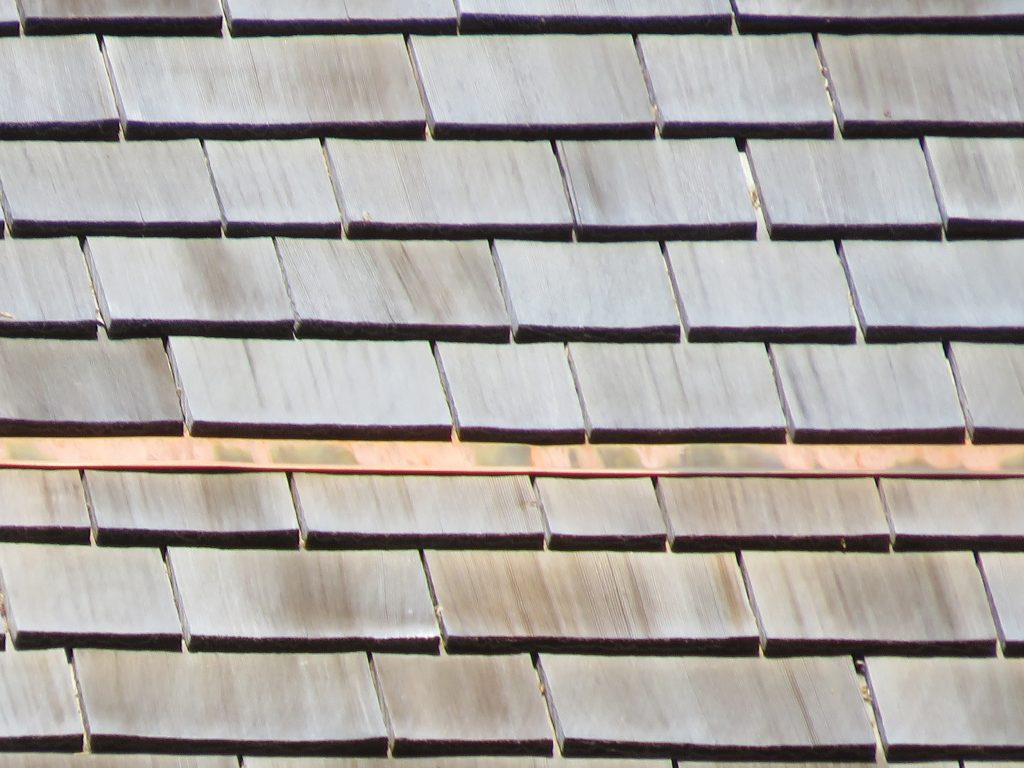Cedar Shingle & Shake Manufacturers List & Website Directory
By Jack Gray, Roof Online Editor • Last updated April 11, 2024
To learn more about wood shakes and shingles, see Wood Shake and Shingle Roofing Introduction and Cedar Shake & Shingle Roof Cost Guide.
For synthetic (imitation) wood shake manufacturers, see Synthetic Composite Shingle Manufacturers.
Return to the Roofing Manufacturer Directory Index

Wood shingles and shakes are two fairly similar roofing materials made from natural wood. They are typically selected by homeowners due to their natural beauty, high wind and impact resistance, and higher insulation value (relative to other residential roofing products). Despite their obvious similarities, there are differences between them.
Wood Shingles:
- Manufacturing: Wood shingles are machine-cut from wood blocks, making them smoother and more uniform in thickness and appearance when compared to shakes.
- Appearance: They have a smoother, more clean-cut appearance and are cut to precise thicknesses and lengths.
- Installation: Due to their uniformity and consistent dimensions, wood shingles can be easier to install and can give the roof a more homogeneous appearance.
Wood Shakes:
- Manufacturing: Traditionally, wood shakes were hand-split from log sections, which gave them a rougher, more textured appearance. Modern wood shake manufacturers typically both machine-split and also saw their shakes so one side is smooth, but the process is designed to retain the rustic look on the visible side of the shakes.
- Appearance: Individual shakes are significantly thicker, longer, and more rough-looking than shingles, with a much more variable texture and surface.
- Installation: Their irregular surface can make installation more challenging. Shakes may or may not be installed with underlayment over the roof sheathing, but they will generally require a (hidden) layer of underlayment spliced in between courses above the exposed part of the shakes.
Types of Wood Used:
- Cedar: The most common type of wood used for both shingles and shakes due to its natural resistance to rot and decay and its excellent weathering qualities.
- Redwood: Also used for its durability and resistance to weathering.
- Cypress, Pine, and Spruce: Less common but still used in certain regions and for specific architectural looks. Cypress, in particular, is (or was) one of the best woods for roofing.
Important Considerations Before Buying:
- Codes, Regulations, and Material Enhancements: Look for wood that has been treated for added resistance to fire, fungi, and insects. This is especially important as many jurisdictions forbid the use of wood shingles or shakes unless the materials have been treated for fire resistance and additional installation modifications are made. The use of a special fire-resistant underlayment may be required. Always check your local code!
- Local Climate: Ensure the wood type and treatment are suitable for your local weather conditions and situation of the actual roof. Wood roofing needs to be able to dry out and may be unsuitable for heavily-shaded roofs.
- Aesthetic Compatibility: Consider how the shingles or shakes will complement your home’s architectural style. Cedar shingles can be an excellent match for traditional New England homes, for instance, but they may look weird on a house in a Dallas suburb.
- Maintenance: You should plan on periodic maintenance, including cleaning and occasional treatments to prevent moss and algae growth. Wood shingle and shake roofs will last longer if the are well-maintained. They will typically last a bit longer than asphalt shingles, and can last up to 40 years if they are properly installed and cared for.
- Cost: Wood roofing can be more expensive than some other materials, both in terms of initial investment and maintenance.
Importance of a Reputable Manufacturer:
- Quality Assurance: A reputable manufacturer will ensure that the wood used is of high quality and properly treated to resist environmental factors.
- Sustainability: Ethical sourcing and sustainability practices are more likely to be followed by reputable manufacturers, ensuring minimal environmental impact.
- Expertise: Established manufacturers will have the expertise to provide products that meet building code requirements, local regulations, and are of reliable and consistent quality.
- Warranty and Support: Reputable manufacturers will offer better warranties and customer support, and will typically have a good technical department that will provide support and answer your questions both during installation and after.
Choosing the right wood shingles or shakes involves considering the type of wood, the style of your home, and the climate in your area. Checking local building codes for fire treatment and installation enhancement requirements is a must. Choosing a reputable manufacturer will help to ensure you receive a quality product that will meet your performance and service life expectations.
*****
If you are a reputable and qualified wood shake or shingle manufacturer and feel that we’ve overlooked your company, feel free to contact us to ask to be added to this list.
See Wood Shakes and Shingles on Amazon
See Wood Shakes and Shingles at the Home Depot